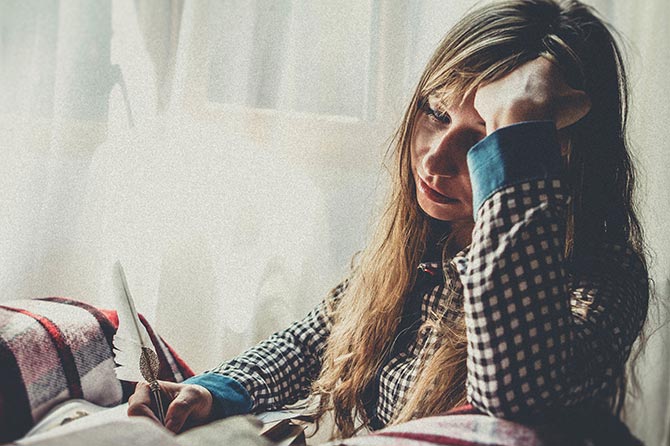
Five Fascinating Historical Sleep Facts
The idea of the body clock is actually a relatively new one and our knowledge and understanding of sleep and sleep science is constantly evolving. Many ancient ‘experts’ have tried their best to explain the phenomenon of sleep and dreams though; some coming up with far wackier explanations than others. Here are some of our favourites.
1. People thought God communicated through sleepThe phenomenon of sleeping in a holy area like a temple in order to receive messages from the Gods was practiced in multiple ancient societies. Evidence suggests the ancient Egyptians practiced it, and the classical Greeks certainly did, believing that the answers to their questions would be revealed in their dreams.
This belief may well have come originally from the biblical story of Abraham. In Genesis, Abraham falls into a deep sleep during which God promised him an heir.
2. The Ancient Greeks nearly got there…
The Ancient Greeks were full of theories relating to sleep. Around 450BC Alcmaeon, a Greek physician produced the earliest documented theory of sleep, describing it as a loss of consciousness as blood retreats from the surface of the body into areas like the brain. He speculated that waking up was as a result of it moving out again.
In around 400BC Hippocrates, widely considered one of the most outstanding figures in the history of medicine, put forward the idea that blood retreated from your limbs into your abdomen to warm itself and produce sleep.
50 years later Aristotle stated that he believed sleep to be caused by warm vapours rising from the heart during digestion, and concluded that sleep is a time of physical renewal. Getting closer to the truth there.
3. Medieval dreams were thought to be the result of demonic possession
In medieval times, dreams were thought to be visions of the future but also a sign the mind was vulnerable to the devil. One medieval author wrote that dreams could ‘arise from God through inspiration... [or] sometimes from the devil through treacherous deception and contrivance.’
The word ‘nightmare’ actually derives from the Anglo-Saxon word ‘marc’ meaning demon, which is related to the Sanskrit words ‘Mara’ meaning destroyer, and ‘mar’ meaning to crush. The word ‘night-mare’ therefore, certainly carries with it connotations of being crushed by demonic forces. Spooky eh?4. Sleeping through the night was unnatural
In medieval times, people actually slept twice a night with a gap in-between to eat, pray or read. This idea of two sleeps (or ‘biphasic sleep’) is ancient, with references to it having been found in Homer’s Odyssey. Movement towards sleeping through the night in one go (‘monophasic sleep’) seem to have been a result of the Industrial Revolution and the new working-day demands of industrial factory production as well as Thomas Edison’s invention of the light bulb.
In the 1990s, a sleep scientist named Thomas Wehr discovered that everyone sleeps ‘biphasically’ when subjected to natural patterns of light and dark. His study concluded that biphasic sleeping is actually the most beneficial and natural sleep pattern.
5. Descartes spent nearly half his life asleep
Ready for a bit of philosophy? Rene Descartes of ‘I think therefore I am’ fame held that people took breaks from mental awareness by sleeping at night. During sleep, the mind couldn’t prove its existence, but, clearly that didn’t mean the sleeping mind didn’t exist. Even while asleep, he speculated, the mind retained its ‘thinking’ status (remember: according to Descartes, thinking equals existence) because it stored the experiences perceived and digested by the waking mind.
More than 350 years later, science is validating Descartes. We now know that the sleeping brain does indeed store thoughts and solidifies memories collected during waking hours. Basically, Descartes nailed it, all whilst spending 10 to 12 hours a day asleep. Whilst most 17th century Europeans were up by 5am, Descartes apparently preferred to saunter out of bed around lunchtime!
Of course it’s hard to fall asleep and stay there if your mattress isn’t in tip-top shape. Dormeo can help eliminate the most common causes of a lack of sleep but don’t just take our word for it.
All our mattresses, whether from our bestselling Memory Range or from our luxury Octaspring Range, are available in Single, Double, King and Super King sizes and come with our 15 year warranty and our 60 night Comfort Guarantee. We are that sure that you will experience the best sleep that if you don’t agree within the 60 day trial period, we'll happily refund you the cost of the mattress with our ‘No Quibble Refund’.
If you have any questions or queries, we are on hand any time to answer them, free, on 0800 625 0134.







Leave a Reply